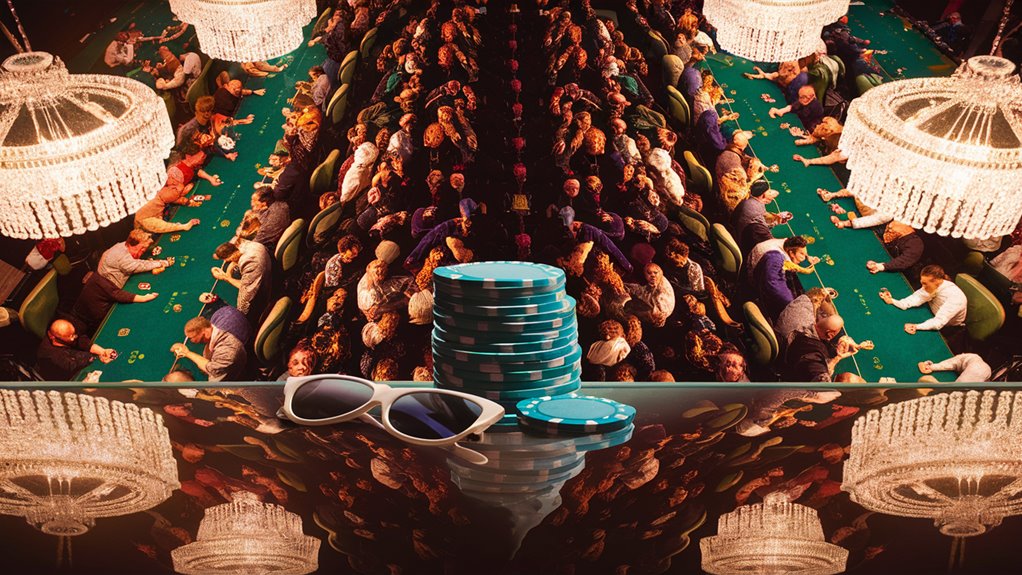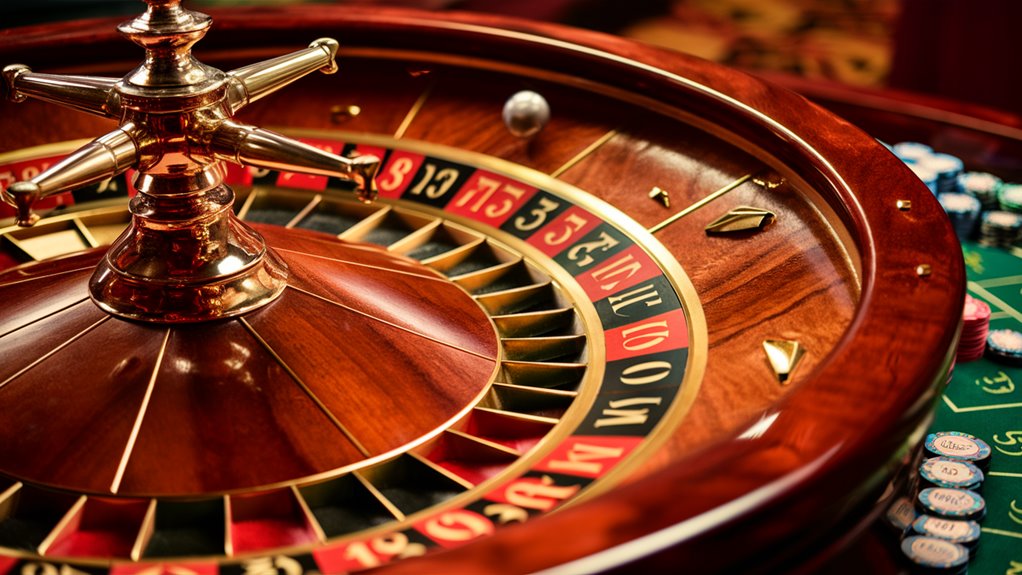Know Casino Tournaments: The Full Guide

Casino tournaments are an exciting change from usual gambling games, setting players in direct fight with other players rather than just the casino. This full guide will tell you all you need to grasp about these fun events.
Types of Tournaments and Their Setup
Casino tournaments cover many game types, like:
- Slot tournaments
- Poker tournaments
- Blackjack fights
- Special game plays
Each kind has its own rules, time limits, and fight rules that players must know to do well.
Tournament Money Talk
Knowing the money setup is key to do well in tournaments:
- Buy-in fees go right to the prize money
- Entry fees pay the host casino
- Prize money setup mostly gives money to top winners
- Tournament chip values are not the same as regular chips
Play Strategy in Tournaments
Tournament strategy is very different from regular casino play:
- Handling your chips well is key
- Bold play goes up as the game moves on
- Time control impacts choices
- Knowing your spot can change how you play for the better
Deep Dive into Tournament Moves
To really get tournament moves, you need:
- Money control that fits the tournament setup
- Know how blind levels go up
- Read what other players tend to do
- Change as the table feel changes
Types of Casino Tournaments
Casino tournaments let players enjoy exciting fights in many setups, each showing different games and skill levels.
Knowing these different types lets players pick fights that fit their skills and likes.
Basics of Slot Tournaments
Slot tournaments bring quick action on chosen machines within set times.
Players fight to get the most points in fixed time limits, usually 15-30 minutes each round.
Scoring in tournaments often has special points and multipliers just for the fight.
Setup for Blackjack Tournaments
Blackjack fights go on through many knock-out rounds at special tables.
Players start with the same number of chips and go up based on what they win.
Playing tournament blackjack needs good money control and watching other players’ chip amounts.
Types of Poker Tournaments
Pro poker tournaments have many styles:
- Sit-and-Go tournaments: One-table games that start when full
- Multi-table tournaments: Big fights with more players going out over time
- Shootout tournaments: Winners from each table go to final rounds
More Tournament Types
Video poker fights work like slot tournaments but need more skill.
Roulette tournaments test players to make the most money within set betting times.
Special games include baccarat, craps, and pai gow poker tournaments.
Levels of Tournament Entry
Buy-in options range from free tournaments with no fee to big-money tournaments needing a lot of money.
Step-by-step tournament setups let players move up to bigger events through small fights.
Tournament Rules and Setup
Tournament play starts with the must-do buy-in process, where players trade money for tournament chips. These chips have no cash value but are key for scoring in the fight.
The first stack size changes with the tournament type and really impacts how you need to play.
Blind Structure and Timing
Tournament blind levels follow a set rise, usually going up every 20-30 minutes.
This set rise in bets makes the game feel more exciting and stops it from getting dull. The blind plan stays the same during the event, letting players plan their moves.
How Seats and Rebuys Work
Tournament seats follow firm rules, with set numbers of players at each table.
Rebuy chances may be there in some fights, letting players who are out buy more chips.
Different game kinds use different point setups – slot tournaments go by points while poker tournaments cut players over time.
Fighting to Stay and Winning Money
Tournament types can be one-go fights or give you a few chances.
The prize money plan follows set parts, giving money to top players based on where they end.
Tournament leaders watch over:
- How chips are handled
- When breaks happen
- How players should act
- Keeping the game fair
This set frame makes sure the fight is fair and well-run in all casino events.
What You Pay to Play and How Money Is Given Out
Tournament fees have two main parts: the prize pool buy-in and the sign-up fee.
The buy-in amount often goes from $50 to a lot more, showing how big and fancy the tournament is.
Sign-up fees cover needed costs while the buy-in goes right to what players can win.
How Prize Money Is Shared and Given Out

Usual Money Plans
Prize plans change based on how many play and the fight setup.
Smaller fights use a top-loaded money plan where:
- 20-30% of players get money
- First place winners get 35-40% of all the prize money
- Other prizes go down in smaller parts
Money for Big Fights
Bigger fights have more spread out money plans, giving out prizes to more players while still giving a lot to top spots.
This setup makes sure high spots get good money while more players get something.
Fancy Tournament Parts
Sure Prize Money
Many casinos give sure minimum prize money, promising certain money amounts no matter how many players join.
This promise makes players feel safe and draws more to the tournament.
More Ways to Join
Modern fights often have:
- Ways to buy more chips
- Chances for players who lost to join again
- Longer play times raising the prize pool
- Need for good money planning for smart play
These parts raise both the possible money and player competition while needing good money plans from players.
Basic Fight Plans
Tournament play needs a very different way than normal casino games. Players must use bold moves while fighting other players, not just the house.
Managing your chips and where you stand are main things in doing well in fights.
Start of the Fight
Safe play is key in the first part to keep your chip spot while learning how other players act.
Focus on keeping your money safe and watching others to build a strong base for later.
Good spot control in this part sets up chances for smart bold moves.
Smart Moves as the Fight Goes On
Right timing becomes key as the fight goes on. Players must mix bold moves with keeping chips, especially if they fall below the average stack size.
Changing your plan is key – usual casino ways often don’t work in fights.
Keep an eye on fight spots all the time and change plans based on how close you are to winning spots and key fight moments.
Things to Think About in Fights
- Watch your chips compared to the average
- Pick the right time for smart moves
- Know how the prize setup can change things
- Change how bold you are based on the fight part
- Think about risks and rewards near key fight spots
Managing Your Spot in the Fight
Smart positioning needs you to always know where you stand in the fight and the money setup.
Players must think about risk-vs-reward carefully, especially near the cut-off spots for prizes.
Smart fight plans often need different choices than usual casino plays.
Mistakes to Stay Away From
Bad money handling in the early fight stages can wreck your chances to do well.
Keeping chips early gives flexibility for later when the heat goes up.
Smart chip keeping lets for smart moves when they really matter, like near the money bubble.
Not Changing Your Plan Right
Changing how you play stays important for long-term win. Players must see that the best way changes through different parts.
Thinking about your stack size directly changes how you decide, needing constant checking and smart shifts as blind levels go up and chip depths change.
Mistakes When You Have Few Chips
Safe play with few chips often leads to going out of the fight. When chips get low, bold moves are needed.
Bold moves with so-so hands are key when blinds are a risk to your chip life. Waiting for the best cards often results in having to move at bad times.
Keeping Pace and Handling Feelings in the Fight
Knowing the right fight pace sets apart those who do well from those who go out early. Early boldness must mix with later changes.
Keeping your cool after bad turns is key – keeping a smart plan despite bad outcomes directly changes if you stay in the fight.
Top choices need you to forget past hands and focus on the best choices now.
Deep Fight Thoughts
Knowing your spot and how the fight setup impacts things need careful attention through the fight setup.
Players must think about risk-reward setups based on the fight part, stack sizes, and what other players tend to do.
Doing well needs constant changes to different dynamics and pressure points.
Tips to Do Well in Fights
Handling your money is a main part of doing well in fights. Use strict rules by keeping each hand risk to 20% of your buy-in.
The fight moves on needing you to change your plan, going from safe early play to smart boldness in later rounds.
Smart Player Watching
Watching other players gives key edges in protect players fights. Track how they bet and how they tend to play well to shape how you decide.
Think about the fight money setup well – change your play near money bubbles based on your stack, using tighter plans with medium stacks and using big stacks to push others.
Top Fight Running
Good time handling directly changes how you do. Watch blind level changes to shape when you change your strategy.
For rebuy fights, set clear rules for when you buy more.
Keep a clear head by focusing on smart number-based choices rather than outcomes.
Use break times to clear your mind and plan well, especially during long fight times.
Smart Choices
- Always watch your chip-to-blind ratios
- Spot chances based on where you are
- Keep knowing where the fight is at
- Look at how the table feels
- Make your bets just right
- Keep picking hands well


